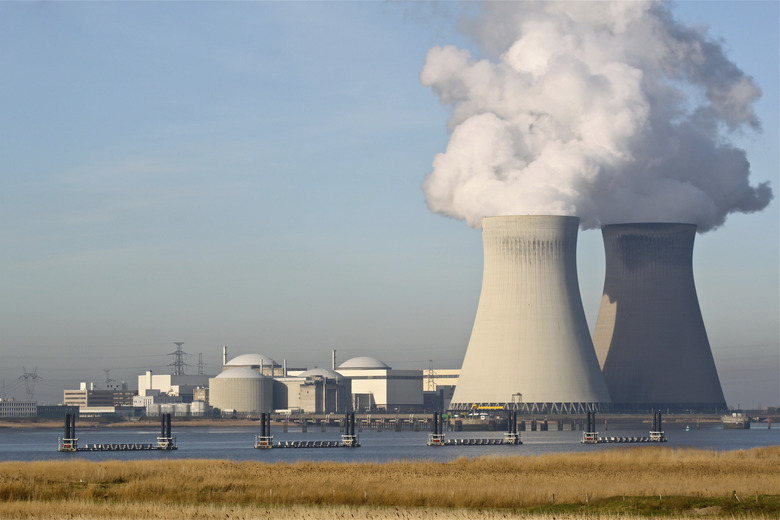What Is Uranium Used For?
Uranium, the 92nd element in the periodic table, is a heavy metal with a variety of uses. Uranium was first discovered by Martin Heinrich Klaproth in 1789 but rose to prominence in 1938 with the discovery of nuclear fission, in which an isotope of uranium, U-235, is split at the atomic level, releasing a great amount of energy. Uranium can be used for nuclear power generation and is also used in the creation of nuclear weapons, among other purposes.
Uses for Uranium
Uses for Uranium
Because the radioisotope U-235 releases so much energy, it can be used for efficient power generation in nuclear power stations or in devastatingly powerful nuclear weapons. However, uranium has several other uses. Because it is 18.7 times as dense as water, it is often used as ballast in airplanes and boats. U-235 is very rare, but U-238 is much more common and can be converted to plutonium for power generation. In addition, a radioisotope of plutonium is used in household smoke detectors. Other radioisotopes are used in radiotherapy and gamma sterilization in medicine; one in two individuals in the western world will benefit from nuclear medicine in their lifetime.
Cite This Article
MLA
Dilthey, Max Roman. "What Is Uranium Used For?" sciencing.com, https://www.sciencing.com/what-uranium-used-4928593/. 24 April 2017.
APA
Dilthey, Max Roman. (2017, April 24). What Is Uranium Used For?. sciencing.com. Retrieved from https://www.sciencing.com/what-uranium-used-4928593/
Chicago
Dilthey, Max Roman. What Is Uranium Used For? last modified March 24, 2022. https://www.sciencing.com/what-uranium-used-4928593/
